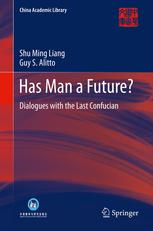

Most ebook files are in PDF format, so you can easily read them using various software such as Foxit Reader or directly on the Google Chrome browser.
Some ebook files are released by publishers in other formats such as .awz, .mobi, .epub, .fb2, etc. You may need to install specific software to read these formats on mobile/PC, such as Calibre.
Please read the tutorial at this link: https://ebookbell.com/faq
We offer FREE conversion to the popular formats you request; however, this may take some time. Therefore, right after payment, please email us, and we will try to provide the service as quickly as possible.
For some exceptional file formats or broken links (if any), please refrain from opening any disputes. Instead, email us first, and we will try to assist within a maximum of 6 hours.
EbookBell Team

0.0
0 reviewsLiang Shu-ming (October 18, 1893 – June 23, 1988), was a legendary philosopher, teacher, and leader in the Rural Reconstruction Movement in the late Qing Dynasty and early Republican eras of Chinese history. Liang was also one of the early representatives of modern Neo-Confucianism. Guy S. Alitto, associate Professor in the Department of East Asian Languages and Civilizations (EALC) at The University of Chicago, is author of, among other things, The Last Confucian: Liang Shu-ming and the Chinese Dilemma of Modernity, and is one of the most active and influential Sinologists in America. In 1980 and again in 1984, at Liang Shu-ming’s invitation, he conducted a series of interviews with Liang in Liang's Beijing home. This book of dialogues between the American sinologist and “The Last Confucian”, Liang Shu-ming, gives a chronological account of the conversations that took place in Beijing in 1980. In these conversations, they discussed the cultural characteristics of Confucianism, Buddhism, Daoism, and their representative figures, and reviewed the important activities of Mr. Liang’s life, along with Liang’s reflection on his contact with many famous people in the cultural and political realms – Li Dazhao, Chen Duxiu, Mao Zedong, Zhou Enlai, Chiang Kai-shek, Kang Youwei, Hu Shi, etc. Rich in content, these conversations serve as important reference material for understanding and studying Mr. Liang Shuming’s thoughts and activities as well as the social and historical events of modern China.